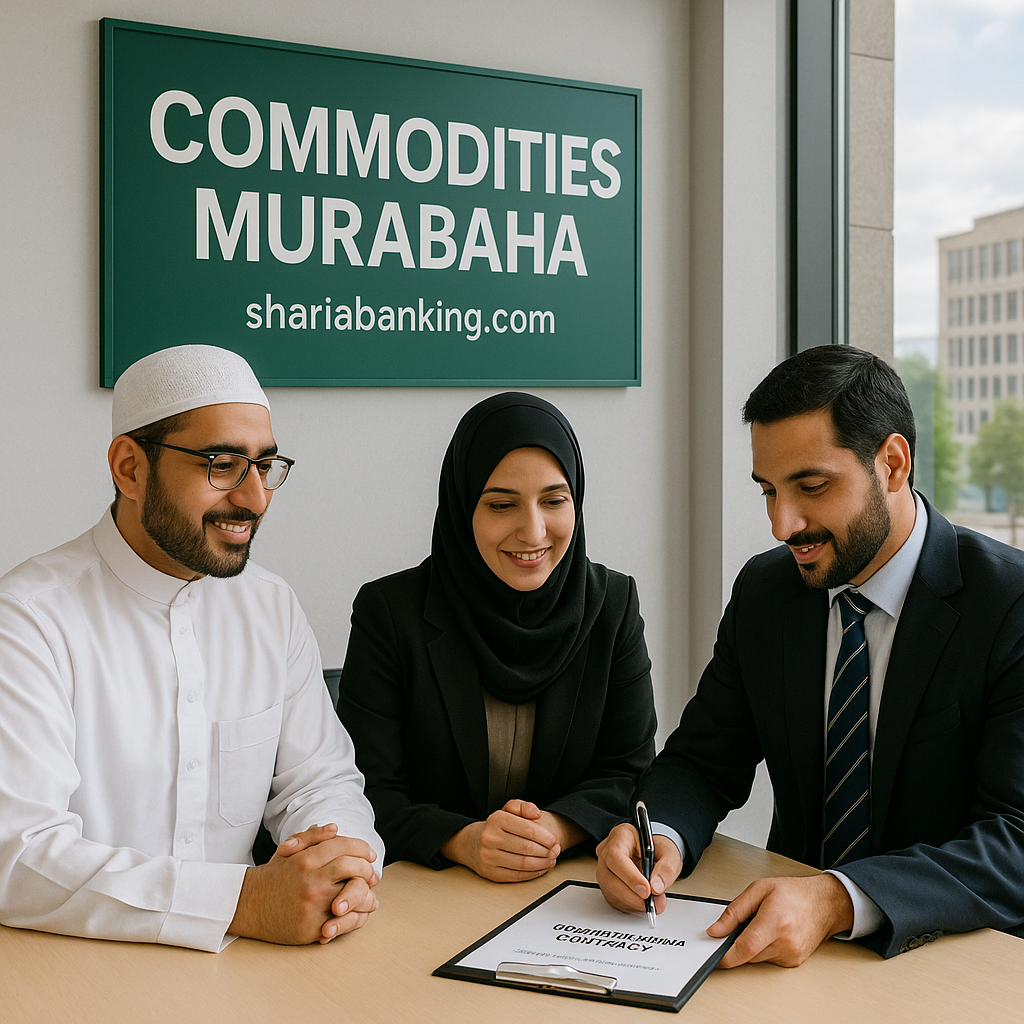
What is the definition of commodities Murabaha)
Commodity Murabaha (often called “tawarruq”) is by definition a Shariah-compliant way to create cash financing or a fixed-profit investment by routing the transaction through a real, tradeable commodity instead of an interest-bearing loan.
In commodity Murabaha, banks use widely traded commodities (e.g., metals) to ensure there is a genuine purchase and sale: the economic aim (cash today, pay more later) is achieved through trade, not lending with interest.
For financing, the typical steps are: (1) the bank buys a commodity spot from Broker A and takes title/possession (often constructively, via warehouse certificates); (2) the bank sells that commodity to the business on deferred murabaha terms at cost + disclosed profit; (3) the business immediately sells the commodity spot to Broker B (or appoints the bank as its agent to do so) and receives cash; (4) the business repays the bank the deferred price in instalments.
<!—wp:paragraph –>
Businesses value commodity murabaha because it delivers predictable, invoice-like cashflows for working capital and deposits, scales from short tenors (1–12 months) to multi-year, and can price off familiar benchmarks (e.g., SONIA/SOFR + a fixed profit, embedded into the sale price) while staying interest-free in form and substance.
What type of commodities murabaha are available ?
Here’s a practical map of the main types of commodity murabaha (tawarruq) you’ll see in the market—grouped by purpose, execution, and structure.
By purpose:
Financing (tawarruq) = borrower gets cash now, repays a fixed murabaha price over time.
Investment (“reverse” murabaha) = depositor places cash, earns fixed profit at maturity.
By execution:
Exchange/platform (warehouse receipts, strong audit trail) or OTC brokers (flexible sizes/timing). Usually constructive possession; physical delivery optional.
By structure:
Agency (wakālah) vs principal-to-principal trading; single fixed term vs rolling short murabahas (to mirror SONIA/SOFR resets); classical vs organized workflows (always avoid buy-back from same counterparty).
By use case:
Working capital, trade/invoice settlement, term funding (capex), interbank/treasury placements.
By commodity:
Widely traded base metals/softs with clear title docs; generally avoid gold/silver (ṣarf rules). Key test: real ownership & risk transfer.
By governance rigor:
Standard pack (agency + promise + murabaha + confirms) vs enhanced controls (dual brokers, strict cut-offs, extra audit trails).
Where can I obtain a commodities murabaha facility for my business ?
Here’s a country-by-country list of banks and institutions that provide Commodity Murabaha facilities:
United Arab Emirates (UAE)
-
- Ajman Bank
-
- Sharjah Islamic Bank (SIB) – in cooperation with DMCC Tradeflow
-
- First Abu Dhabi Bank (FAB)
-
- Dubai Islamic Bank
-
- Abu Dhabi Islamic Bank (ADIB)
Saudi Arabia
-
- Al Rajhi Bank
-
- Bank AlJazira
-
- Saudi National Bank (SNB, Islamic division)
Qatar
-
- Qatar Islamic Bank (QIB)
-
- Masraf Al Rayan
-
- Qatar International Islamic Bank (QIIB)
Kuwait
-
- Kuwait Finance House (KFH)
-
- Boubyan Bank
Bahrain
-
- Al Baraka Banking Group
-
- Ithmaar Bank
Oman
-
- Bank Nizwa
-
- Alizz Islamic Bank
Malaysia
-
- Maybank Islamic
-
- CIMB Islamic
-
- Bank Islam Malaysia
-
- RHB Islamic
Turkey
-
- Kuveyt Türk Participation Bank
-
- Albaraka Türk
-
- Türkiye Finans
Pakistan
-
- Meezan Bank
-
- Bank Islami Pakistan
-
- Dubai Islamic Bank Pakistan
United Kingdom
-
- Al Rayan Bank
-
- QNB London (Qatar National Bank)
-
- Abu Dhabi Islamic Bank UK (corporate desk)
-
- Gatehouse Bank
Kazakhstan
-
- ADCB Kazakhstan (Abu Dhabi Commercial Bank)
Africa
-
- Nigeria: Jaiz Bank
-
- Kenya: Gulf African Bank, First Community Bank
-
- Tunisia: Banque Zitouna
-
- Côte d’Ivoire & Pan-Africa: Africa Finance Corporation (AFC – commodity Murabaha facilities for infrastructure)